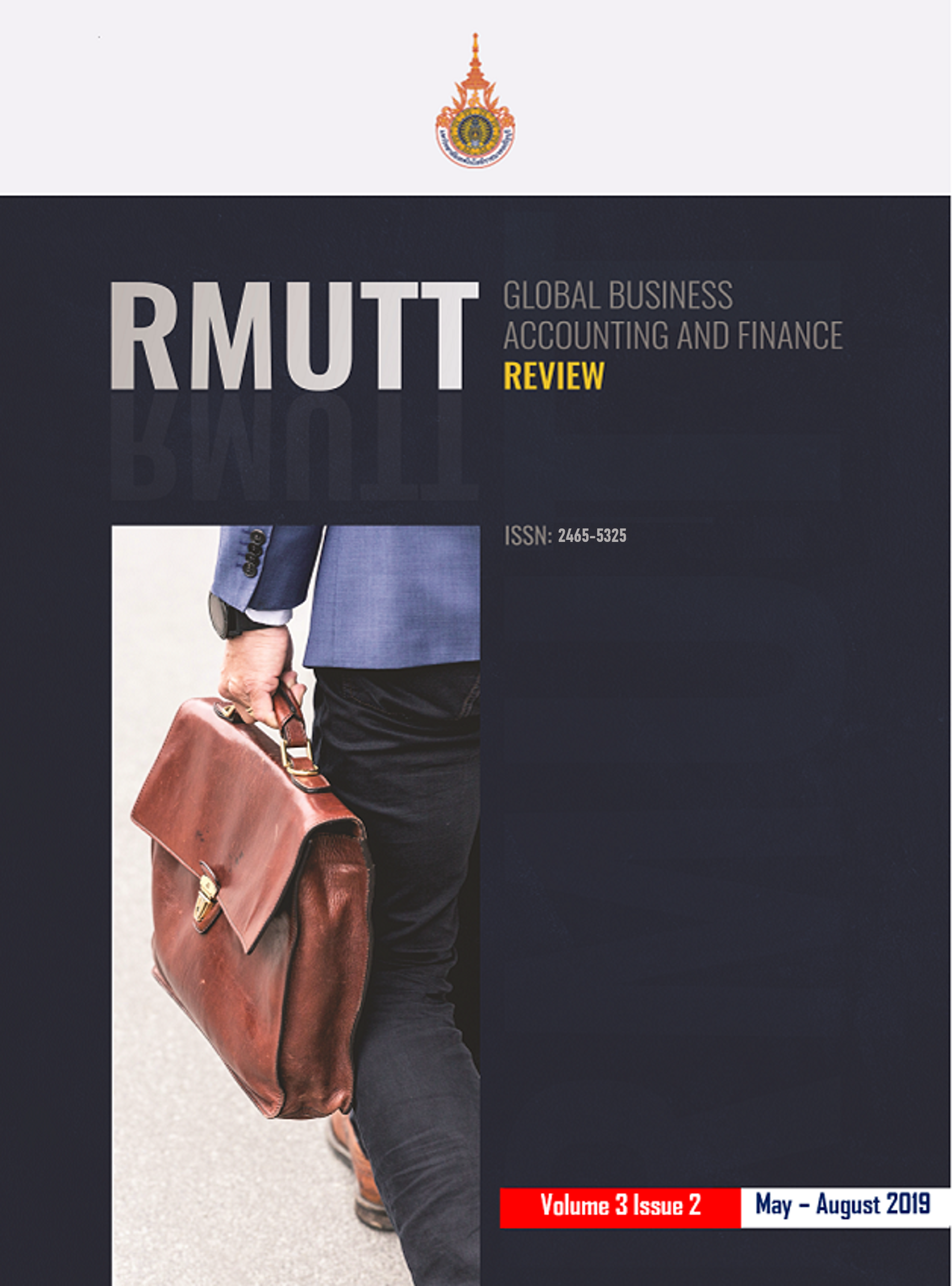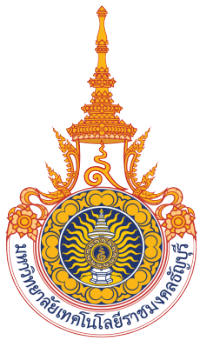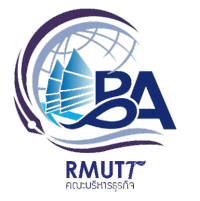PROACTIVE ROLES AND RESPONSIBILITIES OF THE HR DEPARTMENTS IN STAFF TRAINING AND DEVELOPMENT IN THE FIRST-RATE LUXURY HOTELS AND RESORTS IN BANGKOK
Keywords:
Roles and Responsibilities, Human Resource Departments, Staff Training and Development, Hotels and ResortsAbstract
Despite the attempts of hotels in improving service quality of hotel staff in Bangkok through training, a number of studies uncovered some undesirable training outcomes derived from an ineffective training process. This research was conducted based on the assumption that it would have been better for hotels in Thailand if they had reviewed active roles and responsibilities in staff training and development practiced by experienced senior HR administrators working in hotels and resorts which were accredited with a five-star rating. The purpose of this study was to determine proactive roles and responsibilities of the HR departments in staff training and development in first-rate luxury hotels and resorts in Bangkok. The research design of this study was a qualitative approach applying Grounded Theory strategy. The participants of this research were 21 directors and training administrators working in five-star hotels in Bangkok. The participants were identified through the means of three non-probabilistic sampling techniques – purposive sampling, theoretical sampling and snowball sampling. The data collection technique was semi-structured interviews. Constant Comparative Method was undertaken to analyze the data. The study reported six active roles and responsibilities in staff training and development that the HR departments of the first-rate luxury hotels and resorts in Bangkok undertook. These were 1) finalizing the training budget, 2) identifying training needs, 3) designing HRD activities, 4) organizing compulsory in-house training programs, 5) assuring the good quality of all in-house training programs and ensuring employees learn with a smooth training experience, 6) assisting techniques for staff performance management and career development. Recommendations and implications based on the findings found in this study were highlighted.
References
Acquaful, G., Dedume, V., & Appiah S. (2016). Staff Training and Development in the Hospitality Industry, Problems and Challenges – A Comparative Study of SSNIT and KNUST Guest Houses at Kumasi in the Ashanti Region of Ghana. International Journal of Management and Commerce Innovations, 3(2), 179-195.
Bagri, S. C., Babu, S., & Kukreti, M. (2010). Human Resource Practices in Hotels: A Study from the Tourist State of Uttrakhand, India. Journal of Human Resources in Hospitality & Tourism, 9, 286–299.
Bayoud, R. M. (2013). Training in Libyan hotel: a case study analysis. Ph.D Dissertation. University of Gloucestershire. http://ethos.bl.uk/OrderDetails.do?uin=uk.bl.ethos.669463?
Boon-itt, S. (2010). Measuring service quality dimensions: An empirical analysis of Thai hotel industry. International Journal of Business Administration, 3(5), 52-63.
Braun, V. & Clarke, V. (2013). Successful qualitative research: A practical guide for beginners. London: Sage.
Breiter, D., & Woods, R. H. (1997). An analysis of training budgets and training needs assessments in mid-sized hotels in the United States. Journal of Hospitality & Tourism Research, 21(2), 86-97.
Cetinel, F., Yolal, M. & Emeksiz, M. (2009). Human Resource Management in Small and Medium Sized Hotels in Turkey. Journal of Human Resources Management in Hospitality and Tourism Management, 8(1), 43-63.
Creswell, J. W. (1998). Qualitative inquiry and research design: Choosing among five traditions. Thousand Oaks, CA: Sage.
Flick, U. (2007). Designing qualitative research. Los Angeles: Sage.
Gazija, A. (2012). Important of staff training in hotel industry - Case Study: Hotel Dukagjini. Iliria International Review, 1-11.
Hazra, K., Ghosh, P., & Sengupta, P. P. (2017). Importance of Training and Development and its Impact on Employees’ of Hotels in Kolkata, India: An empirical study. Journal of Tourism and Hospitality Management, 5(2), 23-33.
Hayes, K. D., & Zaccarelli, E. H. (1996). Training managers to train. Menlo Park, CA: Crisp Publications
Khanfar, S. M. (2014). Training and its important in the efficiency of employees' performance in five-star hotels in Jordan. Journal of Business Studies Quarterly, 6(2), 137-158.
Marshall, C., & Rossman, G. B., (2011). Designing Qualitative Research. Thousand Oaks CA: Sage.
Martínez-Ros E., & Orfila-Sintes F. (2012). Training plans, manager’s characteristics and innovation in the accommodation industry. Journal of Hospitality Management, 31(3), 686-694.
Millington, A. (2016). These are the world's most visited cities in 2016. World Economic Forum. Retrieved from https://www.weforum.org/agenda/2016/09/these-are-the-worlds-most- visited-cities-in-2016
Pongbungong, O. & Wiboontanakul, S. (2018). Strategy human resource management for talented employees in hotel industry. KasemBundit Journal, 19(special edition), 78-88.
Rathore, A. S., & Maheshwari, N. (2013). Assessment of training needs for the hospitality industry: A case study of hotels in Rajasthan. SAJTH, 6(1), 128-136.
Seale, C. (1999). The Quality of qualitative research. London: Sage Publications.
Singh, V. (2014). 28 Role of Staff Training and Personality Development Programs in Hotels and Restaurants. International Journal of Enhanced Research in Management & Computer Applications, 3(10). 28-32.
Suwannaset, W. (2017). Developing Service Excellence in Five-Star Hotels in Bangkok through HRD Needs Assessment. Journal of HRIntelligence, 12(1), 103-124.
Tourism Authority of Thailand. (2011). Thai Hotel Resort Directory 2011, Received from http://www.mekongtourism.org/wp-content/uploads/ Thailand-Standard-Hotel-Director.pdf
Thai Hotels Association, Thailand Hotel Standard Foundation (2014). Checklist for Thai hotels standard, Retrieved from http://thaihotels.org/new-checklist-for-hotel/
Thansettakij. (2016 January 8) Thai tourism 2014 hit the record generating income over 2.23 million bath. Thansettakij, Retrieved from http://www.thansettakij.com/content/25115
Werner, J. M., & DeSimone, R. L. (2012). Human Resource Development (6th ed.). OH: South-Western Cengage Learning.









